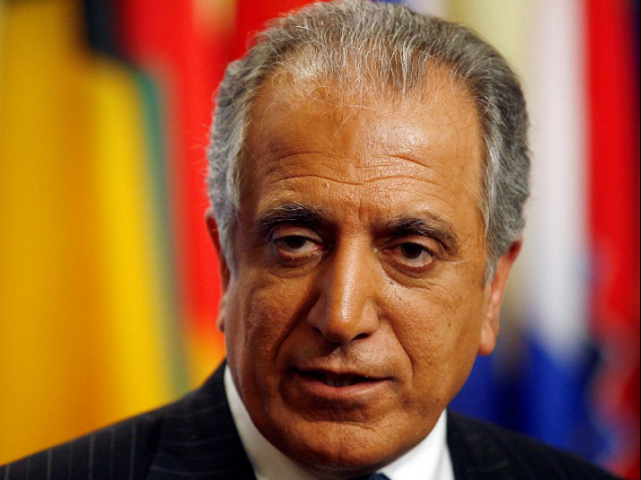
He conceded that the current pace of talks isn’t sufficient “when so much conflict rages and innocent people die”. He noted: “We need more and faster progress. Our proposal for all sides to reduce violence also remains on the table.”
The current talks focused on two main issues — time frame for the withdrawal of US forces and firm guarantees by the Taliban that the Afghan soil will never be used again by any terrorist outfits such as al Qaeda.
The sticking point, however, is the Taliban’s refusal to agree on a ceasefire and hold direct talks with the Kabul administration. While the US insists no deal is possible without cessation of violence and intra-Afghan dialogue, insurgents are adamant that these issues would be dealt with once the foreign forces leave the country. Hence, the stalemate continues.
What has further undermined the prospects of any peace deal is a statement by Taliban Chief negotiator Sher Mohammad Abbas Stanekzai in which he asserted that the US is on the verge of defeat.
According to Voice of America (VoA), he made this claim in an April 28 speech to an “internal gathering” in Doha, Qatar, just two days before he led his team of insurgent negotiators into fresh talks with US interlocutors.
In the speech, Stanekzai praised what he called the bravery of the Afghan nation for defeating past British and Soviet invasions of their country and resisting the current foreign military presence, referring to the US-led coalition, which is training and advising pro-government forces in battles against the Taliban.
“God has helped us defeat three superpowers in the last century. The third superpower that we are currently confronted with is also on the verge of defeat, Insha’Allah (God willing). You will soon hear they also will withdraw [from Afghanistan] either of their own accord or they will be forced out,” Stanekzai told the gathering.
His statement reinforced fears that the Taliban may be only buying time under the garb of negotiations with the US. In reality, the insurgents have already come to the conclusion that the US would leave Afghanistan sooner than later, something that would raise prospects of their return to power.
Their assessment may not be wrong either given the fact that they survived even when the US-led coalition had over 140,000 troops at its disposal in Afghanistan. Currently, there are around 17,000 foreign troops including 14,000 Americans, who are primarily engaged in training the Afghan forces. So, the Taliban are playing a waiting game.
In this scenario can the US strike a peace deal with the Taliban or is it too late now? The assertion of the Taliban leader suggests that they are not keen on striking a peace deal with the US but even if there is one that would be certainly on the Taliban’s term.
Pakistan, which is considered a key player in the Afghan peace process given its proximity to Afghanistan, is skeptical about the prospects of the ongoing talks leading to a breakthrough.
Islamabad thinks that Afghanistan in all likelihood is heading towards a ‘civil war’. Its assessment is based on a number of factors, including deepening divide within the Afghan society that is preventing intra-Afghan dialogue, considered essential for any consensus peace deal.
In the present situation, according to Pakistan, Afghanistan is going nowhere but towards further chaos. This view has also been echoed by former US defence chief Robert Gates. Given this precarious situation, the hope for an Afghan endgame may remain a distant dream.
Published in The Express Tribune, May 20th, 2019.
Like Opinion & Editorial on Facebook, follow @ETOpEd on Twitter to receive all updates on all our daily pieces.
1725354252-0/Untitled-design-(5)1725354252-0-405x300.webp)
1732099866-0/adele-(3)1732099866-0-165x106.webp)









COMMENTS
Comments are moderated and generally will be posted if they are on-topic and not abusive.
For more information, please see our Comments FAQ